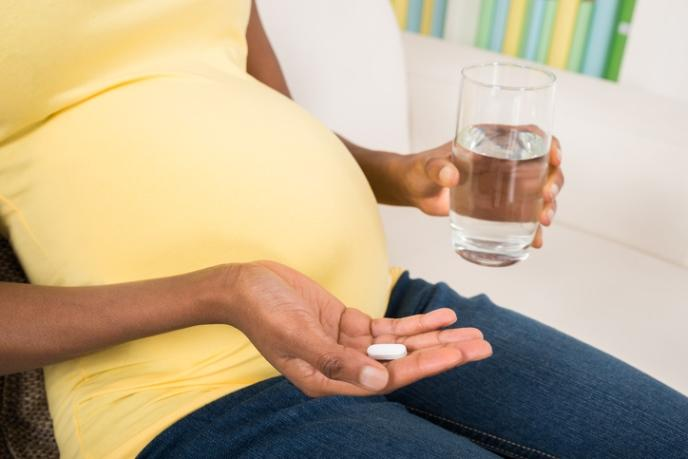
Only 1.3% of pregnant US COVID-19 patients received an antiviral drug to reduce the risk of severe illness in winter 2021 to fall 2022, 67% less than their nonpregnant counterparts, finds a study published last week in Clinical Infectious Diseases.
University of California Los Angeles researchers analyzed claims data on antiviral drug prescriptions among 412,755 privately and publicly insured COVID-19 outpatients ages 18 to 49 years who were pregnant (33,855), recently pregnant (2,460), or nonpregnant (376,440) from December 2021 to September 2022.
"The odds of admission to an intensive care unit and the need for invasive ventilation following COVID-19 illness are 2-fold higher in pregnant and recently pregnant people compared with nonpregnant women of reproductive age," the authors wrote. "Severe COVID-19 illness during pregnancy has been linked to increased risks of preterm birth, cesarean delivery, and fetal growth restriction."
The National Institutes of Health recommend nirmatrelvir-ritonavir (Paxlovid) as first-line treatment for nonhospitalized, high-risk pregnant COVID-19 patients.
Low prescribing even in women with chronic conditions
A total of 6.8% of all participants received an antiviral (1.3% of pregnant, 5.4% of recently pregnant, and 7.3% of nonpregnant women). Paxlovid was prescribed most often (90.9%), followed by molnupiravir (9.1%) and intravenous remdesivir (less than 0.1%).
As with COVID-19 vaccine trials, pregnant people have been excluded from clinical trials evaluating COVID-19 therapeutics.
The rate of antiviral prescriptions was 67% lower in pregnant than in nonpregnant women (prevalence ratio [PR], 0.33), including those with one or more high-risk underlying conditions (PR, 0.29). Prescription rates were also lower among recently pregnant women who had at least one high-risk chronic condition (PR, 0.57).
Antiviral treatment rates rose with age for recently pregnant and nonpregnant—but not pregnant—patients. In total, 64% of recently pregnant and 85% of nonpregnant antiviral recipients had private health insurance, relative to 55% of pregnant women.
"As with COVID-19 vaccine trials, pregnant people have been excluded from clinical trials evaluating COVID-19 therapeutics," the researchers wrote. "The evidence supporting the safety and effectiveness of COVID-19 treatments during pregnancy is therefore limited, which may influence hesitancy to prescribe and/or use antiviral medications during pregnancy and lactation."













